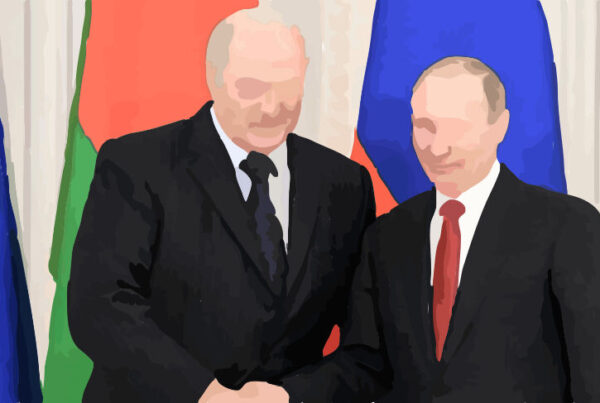The Russian Parliament voted at first reading the expansion of the targets of the ominous law “against the propaganda of non-traditional relationships”.
According to the latest proposal, the “propaganda”, that also ranks paedophilia as a “non-traditional relationship”, would be forbidden not only towards minors, but to the whole of the Russian population. Media estimate that the bill might be definitively approved in springtime.
The newer fines would amount to a minimum of 50,000 to a maximum of 400,000 roubles (800-6,500 Euro) for physical persons. The amount is doubled if propaganda is made by a person holding public office. Specifically, legal persons, as media or associations, risk a fine from 800,000 to 5 million roubles (13,000 – 80,000 Euro) and the suspension of activities up to 90 days. Similar fines are laid down for those who “encourage teenagers to change sex”.
Whoever was to propagandise paedophilia, instead, faces almost double the sanctions.

© picture by severreal.org
Nina Ostanina, head of the State Duma Committee for Family, Women’s, and Children’s Affairs, who in the past already compared coming out to confessing to having a cancer, believes that these sanctions are not strong enough. During the examination of the law at second reading, she proposed – along with her colleague Nikolai Burlyaev – to add penal sanctions in case of “repeated violations”: up to two years in prison, with the option of a sentence to forced labour, which become three if the “offence” was committed in the presence of minors.
In an interview, Ostanina also called for the law to be used to close “gay clubs and similar places”.
A decree signed by President Putin underlines the importance for the country to promote the “traditional values underpinning Russian society”. “Urgent measures” are required, against “those media and organisations” that want to “import foreign values into Russian society, such as the destruction of the family institution through the propaganda of non-traditional relationships”. According to the decree, the impact of these “ideologies” is “a threat to the demographic of the country”.
It should come as no surprise that the Russian Orthodox Church, in the person of Vladimir Legoyda, Head of the Russian church’s Synodal Department for Church, Society and Media Relations, spoke in favour of the new provision, and wished for the law to be amended to strike “social networks, where such propaganda is most widespread”.

© picture by Chela B / Unsplash
From a medical perspective, this law could have disastrous consequences, as Elizaveta Klyuchikova, a 34-year-old psychologist fled to Serbia, points out. When the current law came into force in 2013:
“…the authorities shut down all online resources that informed younger people. Mental health services were discontinued, and professionals were afraid to work with minors. In addition, the law strengthened the stigma around LGBT people and blocked any chance for psychologists to work with teenagers. If you only try and say to a kid that what they are feeling is normal, and if you don’t say that being gay or lesbian is something horrifying, you’re committing a crime. If the new provision were to be approved, from a legal point of view going to therapy would be impossible. Professionals would be afraid to address the topic with their patients, just as it happened in 2013 with younger people”.
Lastly, according to Klyuchikova,
“…coming out is seen as a form of propaganda, but it is not an act aimed at an audience: it is an act of self-awareness. If a person is forbidden to openly say that they are gay, then the person is bound to be ashamed of their sexual orientation”.
The law takes into consideration all media, from cinema to tv, press, streaming services, literature, and social networks, and this leads Russian citizens to wonder what exactly “propaganda” is, how far do bans go, and what should be avoided not to commit a crime.
For example, should literary classics that address the topic be censored? M.P. Alexander Khinshtein, in his own way, reassures those who work in the publishing industry:
“…the bill is not an attempt at censorship. We do not want to forbid talking about LGBT people as a phenomenon, but specifically propagandise this phenomenon. And propaganda means conveying information and carry out actions which aim to induce other to adopt non-traditional sexual habits, to give glamour to these relationships, or convey the idea that traditional and non-traditional relationships are equivalent”.
To Ilona Moteyunayte, professor of philology at the University of Pskov (a town in Western Russia, close to the border with Estonia), bring out such differences is one of the tasks of literature, which
“…has always been like this: it addresses all phenomena that spark an interest. Today, the world is seen as more open, broader and diverse. Differences between people in all their aspects are highlighted in the cultural setting”.
The Ministry of Education, on the other hand, suggested some guidelines for the adoption of school books. These must not have contents that
“…deny the value of family, that promote non-traditional sexual relationships and that may encourage disrespect towards parents”.
The toughening of the crime of “LGBT propaganda” could also increase the flow of people fleeing Russia. If the estimated number of people who have left the country since the announcement of the military mobilisation last September is between 200,000 and 1 million, the number of people who might seek to expatriate following the final approval of this law could be even higher: the last glimmer of legality and existence would be shut close, therefore people could no longer express their identity to avoid a heavy fine, at best.
As one of the voices of opposition, Meduza (considered a “foreign agent” in Russia) points out that, if there is any propaganda, it’s the one operated by the government, and the media that echo it, on the topic. The news that’s being spread is that “LGBT” is something that the “enemies of Russia” want to force upon the country to weaken it, they fabricate stories such as that British children are forbidden to report paedophiles, and that in the USA the number of students who “have not chosen their gender yet” has increased by almost 600%. They say that the word “gender” (often used in its English form) and “LGBT” are synonyms of Satanism and claim that it’s against this new Satan “that our friends and brothers are fighting in Ukraine”.
Alessandro Garzi
translation by Alessia Florimo
©2022 Il Grande Colibrì
Cover Image: Rendition on photo by Alexander Grey / Unsplash

© picture by Alexander Grey / Unsplash




